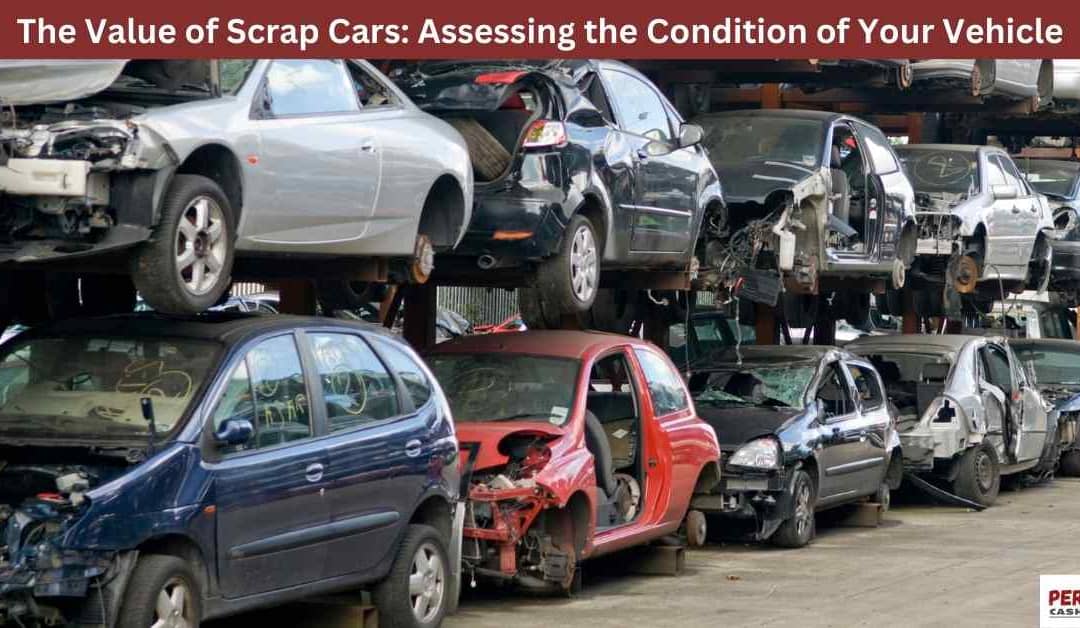When it comes time to part ways with an old vehicle, understanding its value can be challenging. Many people consider their scrap car as nothing more than a burden, but it’s essential to recognize that even scrap cars hold value. Assessing the condition of your vehicle accurately can help you make informed decisions about its disposal, potentially leading to financial benefits. In this blog, we’ll explore how to assess the condition of your scrap car and understand its value.
Understanding the Value of Scrap Cars
Scrap cars, despite their condition, have intrinsic value. This value comes from the various components and materials that can be salvaged, recycled, or resold. Factors influencing the value of a scrap car include:
- Metal Content: The primary value in scrap cars is the metal content. Steel, aluminum, and copper are valuable and can be recycled to produce new materials.
- Parts and Components: Usable parts such as engines, transmissions, and electronics can be removed and sold separately.
- Market Prices: The value of scrap metal fluctuates based on market conditions. Higher metal prices can increase the value of your scrap car.
Assessing the Condition of Your Scrap Car
Accurately assessing the condition of your scrap car is crucial for determining its value. Here’s a step-by-step guide to help you evaluate your vehicle:
1. Inspect the Exterior
Start by examining the exterior of your vehicle. Look for:
- Body Damage: Assess the extent of rust, dents, and scratches. Significant damage may reduce the car’s value, but even a car with a damaged exterior can have valuable metal content.
- Condition of Tires: While tires are often not worth much in scrap, they can still affect the overall value of the vehicle. If they’re in decent condition, they might be worth selling separately.
2. Examine the Interior
The condition of the interior can also impact the value of your scrap car:
- Upholstery and Dashboard: Check for wear and tear on the seats, dashboard, and other interior components. Usable parts can be salvaged, cleaned, and resold.
- Electrical Components: Functional electronic components such as radios, navigation systems, and control modules may have resale value.
3. Check the Engine and Transmission
The engine and transmission are among the most valuable components of a scrap car:
- Engine Condition: Even if the engine is not running, it may still have valuable parts. Inspect for any visible damage and note whether it’s a complete engine or missing components.
- Transmission: Like the engine, a functioning or partially functioning transmission can be valuable. Check for signs of leaks or damage.
4. Assess the Car’s Overall Functionality
Evaluate the car’s overall functionality, even if it’s not operational:
- Starting and Running: If the car can start and run, it may increase its value. A running car can be driven to a scrap yard, potentially saving on towing costs.
- Mechanical Issues: Document any mechanical problems. While these issues may reduce the car’s value, they can also help scrap yards understand what parts are salvageable.
5. Consider Additional Factors
Additional factors can affect the value of your scrap car:
- Age and Model: Older vehicles or specific models may have parts that are in higher demand. Research whether your car model has any parts that are particularly sought after.
- Mileage: High mileage can affect the overall condition but may not be as significant for scrap value. However, lower mileage engines and parts can be more valuable.
Getting a Fair Assessment
To ensure you get a fair assessment of your scrap car’s value:
- Consult Multiple Scrap Yards: Contact several scrap yards or auto recyclers to get quotes. This will give you a better idea of the current market value.
- Provide Detailed Information: When requesting quotes, provide as much detail as possible about your vehicle’s condition. Accurate information will help scrap yards give you a more precise estimate.
- Get a Professional Evaluation: If you’re unsure about assessing the value yourself, consider getting a professional evaluation. Many scrap yards offer free inspections to determine the value of your vehicle.
Benefits of Selling Your Scrap Car
Selling your scrap car has several advantages:
- Financial Gain: Even if your car is in poor condition, selling it as scrap can provide you with extra cash.
- Environmental Impact: Recycling scrap cars helps reduce waste and environmental impact by reusing materials and parts.
- Clearing Space: Getting rid of an old vehicle frees up space in your garage or driveway.
Conclusion
Assessing the condition of your scrap car is crucial for understanding its value and making informed decisions about its disposal. By thoroughly evaluating the exterior, interior, engine, transmission, and overall functionality, you can get a clearer picture of your vehicle’s worth. Consulting with multiple scrap yards and providing detailed information will help you secure a fair price for your car.
Selling your scrap car not only provides financial benefits but also contributes to environmental sustainability. By recycling and reusing parts and materials, you play a part in reducing waste and conserving resources. So, take the time to assess your vehicle’s condition accurately and explore your options for selling it.
Now Perth Cash 4 Cars is available in Riverton Western Australia 6148.
Perth Cash 4 Cars
0402 637 636

